CCARDESA /AICCRA Calls for Urgent Climate and Gender-Inclusive Actions
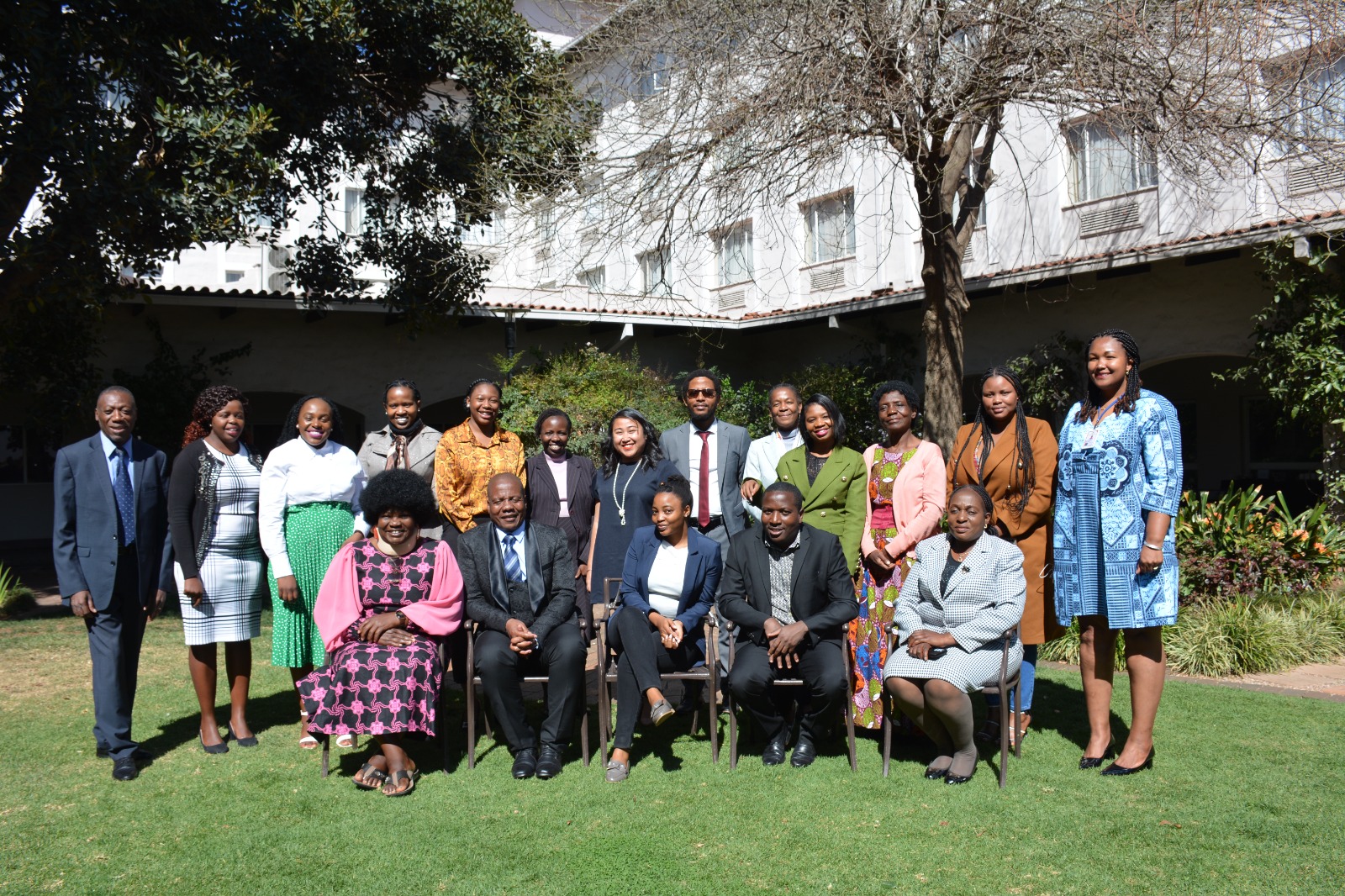
By Dorcas Kabuya and Bridget Kakuwa-Kasongamulilo
Climate change is no longer a distant threat. It is affecting every country on every continent. From droughts and floods to erratic weather patterns, these changes are affecting both men and women, but often in different ways. It is crucial to recognize that its impact is not gender-neutral as women have continued to bear a significant burden of the impacts of climate change in the SADC region and globally.
It is for this reason that the Centre for Coordination of Agricultural Research and Development for Southern Africa (CCARDESA) through the World Bank Funded Accelerating Impacts of CGIAR Climate Research For Africa (AICCRA) Programme concluded a groundbreaking three-day workshop from 28-30 August, at the Garden Court Hotel in Johannesburg- South Africa, targeting decision-makers in the climate change and gender sectors.
The workshop aimed to provide technical knowledge, experiential learning, and best practices for the effective implementation of gender-specific climate change interventions. It also sought to address systemic gender constraints at national and regional levels by critically examining current policies, strategies, and action plans.
Mr Mpendulo Masuku from the Kingdom of Eswatini, a participant in the workshop, stressed the importance of documenting indigenous knowledge and breaking all barriers that impede collaborative efforts. "We excel in policy development but often fail in its implementation, mostly because we don’t consult local communities," He said. Mr Masuku called for tailored, evidence-based practices rather than a one-size-fits-all approach.
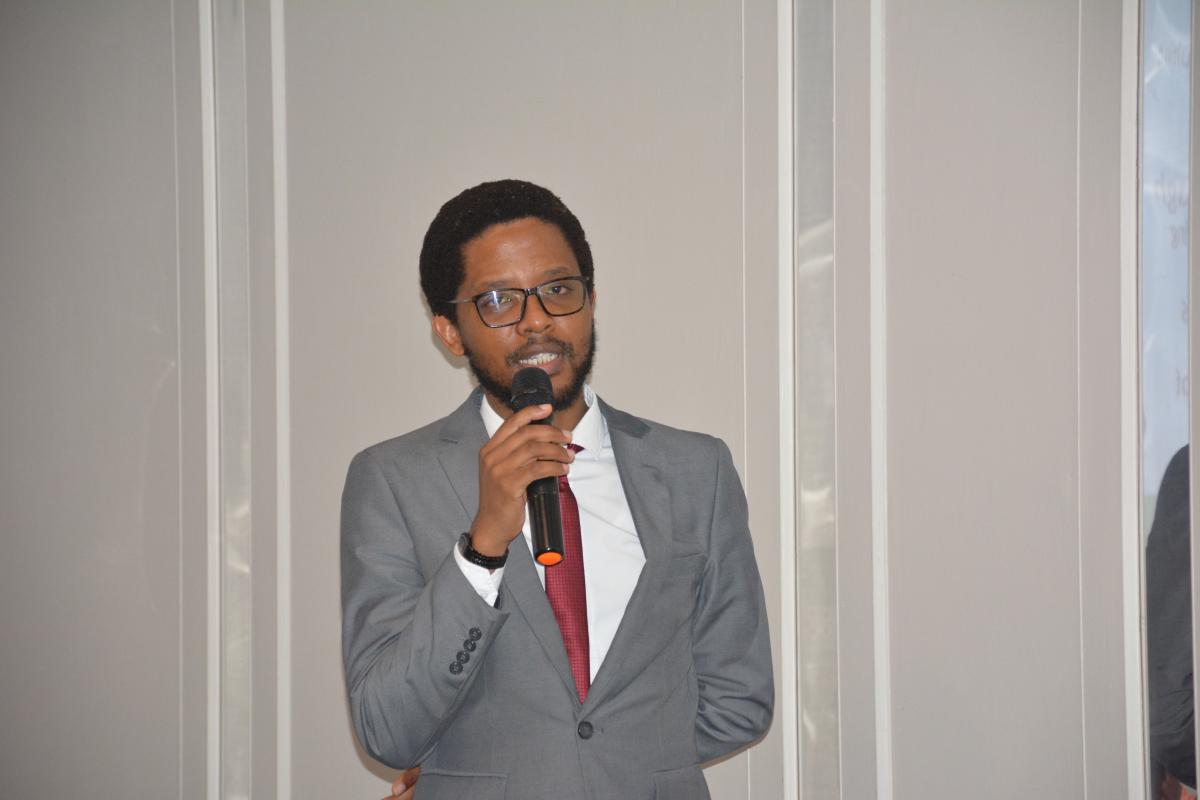
Mr Mpendulo Masuku from the Kingdom of Eswatini
Dr. Noah Zimba, a training consultant, highlighted that climate change is now a crisis and requires urgent attention. He pointed out that the means of implementation would require capacity building, advanced technologies, and financial enablement. Mr Zimba also discussed the regional implications of climate change, including increases in crime rates, insecurity, and the burden of disease, emphasizing the need for political engagement and addressing inequalities.
Dr. Zimba explained that despite the SADC region being endowed with all the natural resources and water it was extremely vulnerable as the support system for livelihood was mostly dependent on rain-fed and smallholder production activities. “The lens for gender as a nexus with climate change becomes very important because the gender segregation means that the impacts of climate change affect the gender profiles differently which raises the urgency for action,” he underscored.
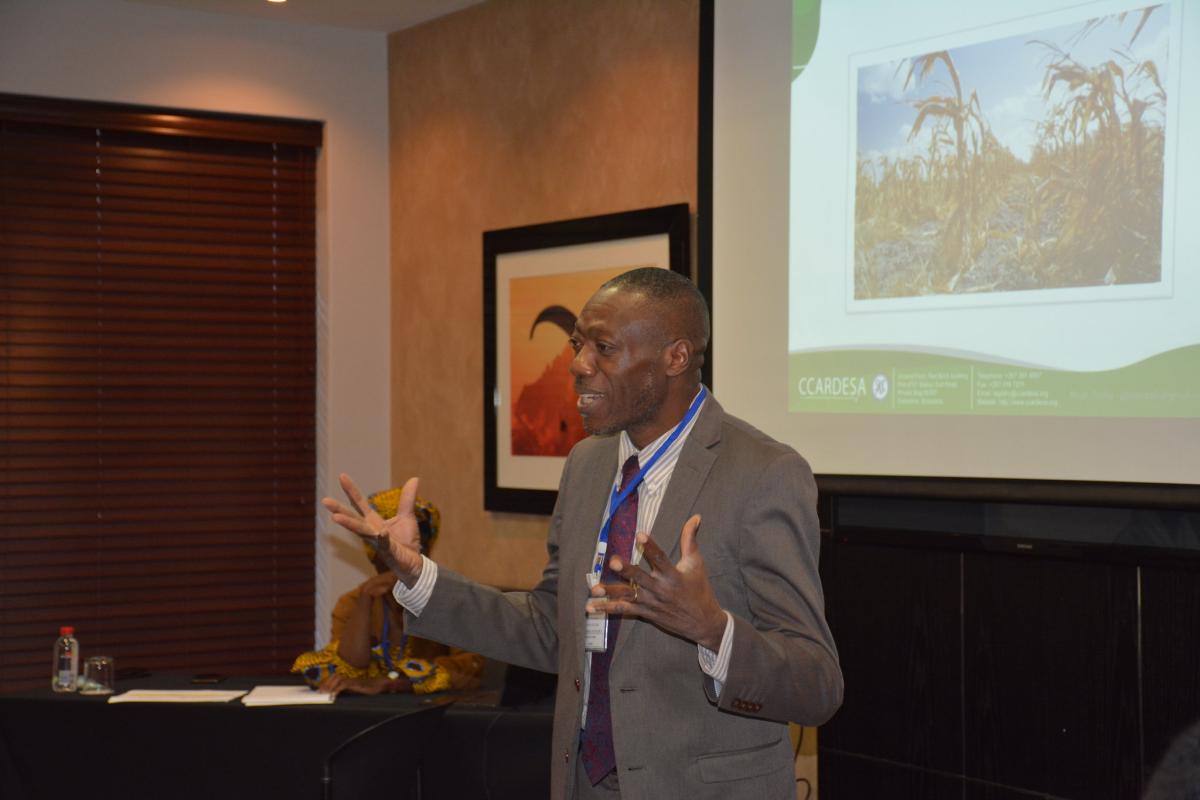
Dr. Noah Zimba Training Consultant from Zambia
He stated that most countries in the region had developed respective Gender Action Plans adding that it was also imperative for these countries to not only enhance the execution of these plans but committed to raising the resources to build local-level resilience that is gender-responsive. “Without action, it will cost us unbearable implications on the gains that the region has made socially, economically, and also biodiversity stewardship coupled with the security of the region,” he detailed.
Dr. Zimba further emphasized that it was important for the region to put its resources where it mattered the most through sharpening and clarifying gender investment around climate change priorities for the respective countries and ultimately the region. “Remember one country cannot address issues surrounding climate change as what affects Mozambique also affects Malawi and Zambia, therefore there is a need for collaboration and promote joined actions,” he specified.
Dr. Rose Karimi from ICA Africa left participants and stakeholders with much to ponder when she particularly highlighted the divide between "Climate Change Winners and Losers." She urged for recognition and learning from those resilient communities and individuals who have successfully adapted to the realities of climate change. Simultaneously, she stressed the need to extend support to those communities and sectors that have been less adaptive or face institutional resistance to change.
Dr. Karimi emphasized the role of "Gender Inclusion". She said, there is a need for the active and equal participation of women in Climate-Smart Agriculture. She acknowledged women as the backbone of agricultural communities and as pivotal players in shaping sustainable and resilient futures.
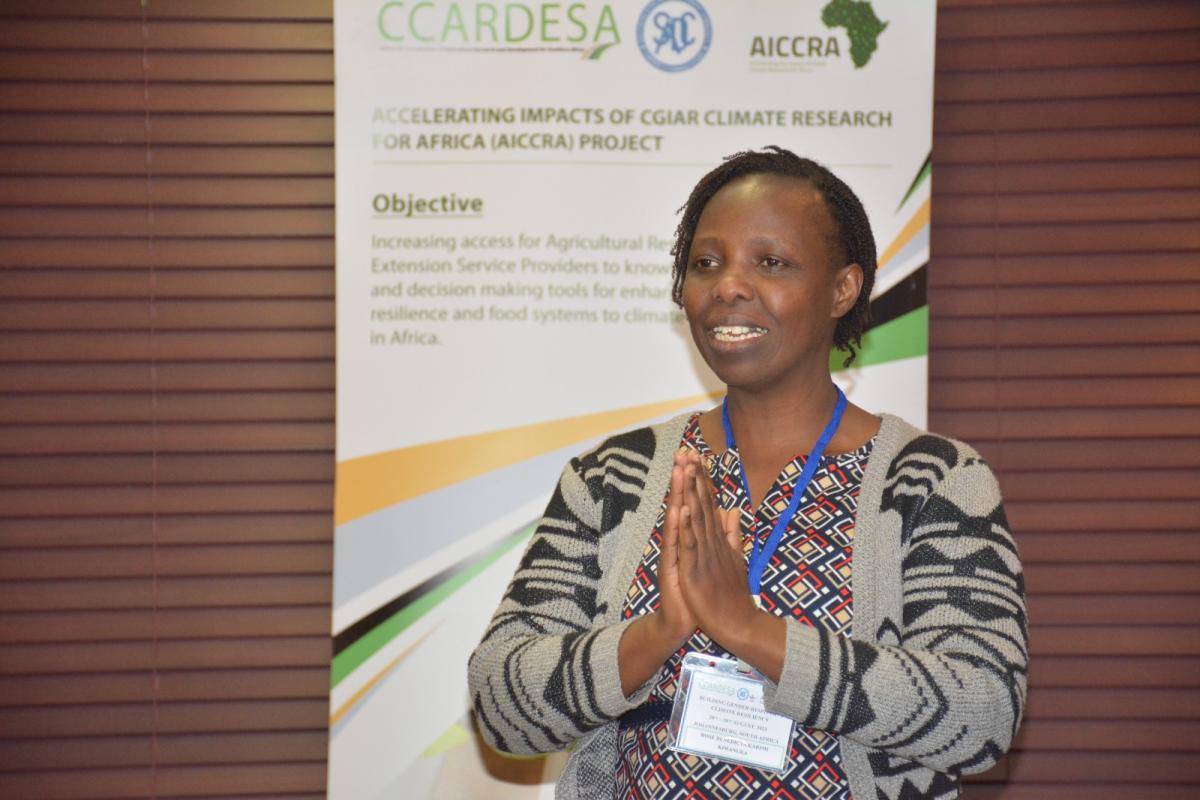
Dr. Rose Karimi Facilitator from Kenya
Civil Society Organisations from the region who attended the meeting also added their voice to this noble call as they strive to complement the government’s work in aiding the local people.
Mrs Mailes Zulu an impassioned environmentalist, and Chief Executive Officer of Save Environment People’s Agency (SEPA) said climate change was disrupting food security and there was an urgent need to bring all players together including the differently abled. “We all have a responsibility to try and reverse the situation by venturing into sustainable ways of farming with knowledge from the past, present, and future as food insecurity is a danger not only to the region but families at large,” she stated. Ms. Zulu echoed that climate change was a common challenge with no boundaries adding that isolated efforts would not take the region anywhere.
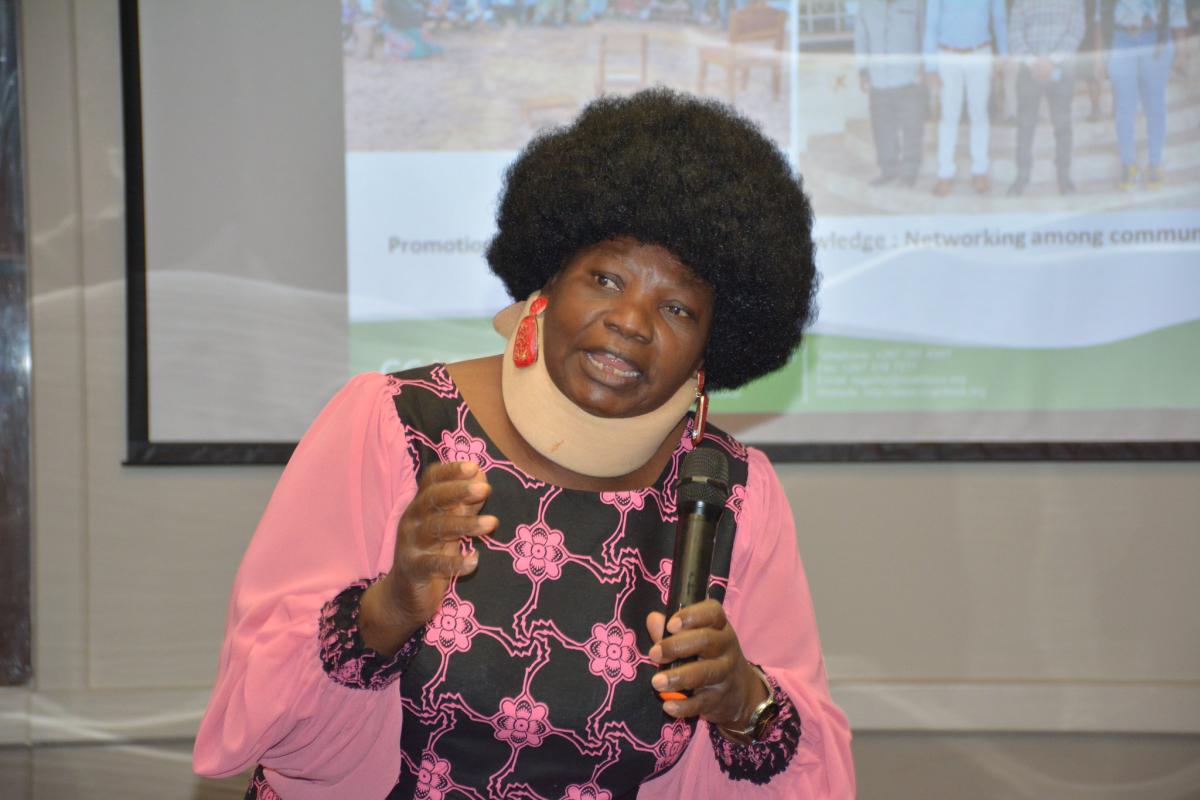
Mrs. Mailes Zulu from SEPA Zambia
Ms. Antionette Moleele from Global Climate Smart Agriculture Youth Network in Botswana noted that Africa was not food insure but rather a change of mindset in the way things are done was needed to achieve what is good for the region. “We all are policymakers at whatever level and we have the power to change as long as we feel we need to change,” hinted Ms. Moleele.
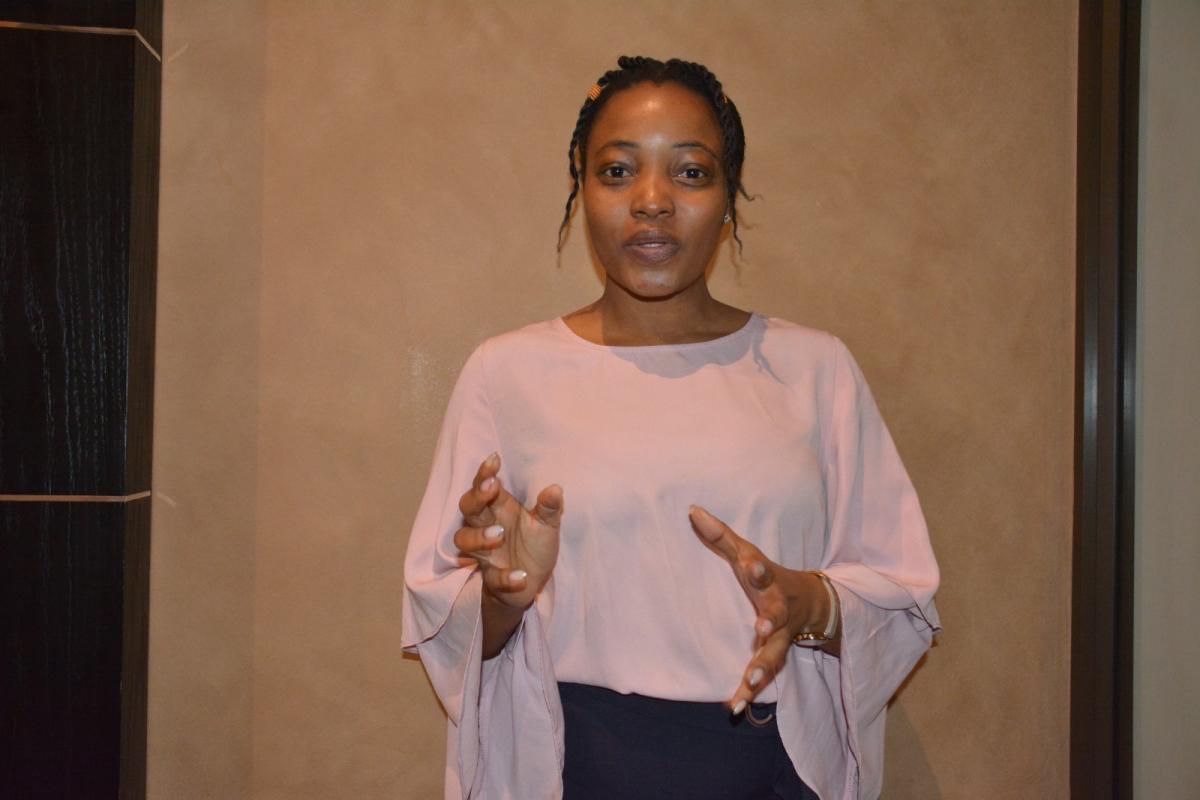 Ms. Antionette Moleele from Global Climate Smart Agriculture Youth Network in Botswana
Ms. Antionette Moleele from Global Climate Smart Agriculture Youth Network in Botswana
Dr. Joyce Mulila Mitto, the AICCRA Advisor, presented a four-pillar strategy aimed at addressing climate change and promoting gender inclusivity. The first pillar focuses on networking and sharing "gender-smart" knowledge in Climate-Smart Agriculture and Climate Information Services, with the aim of creating a repository of adaptable strategies. The second pillar involves hands-on training sessions and field visits to build a skilled cadre capable of effective resource mobilization, aligning with AICCRA's grassroots approach.
The third and fourth pillars of AICCRA's strategy aim to strengthen collaborations among stakeholders in climate and gender issues and to ensure policy implementation, respectively. She hinted that special consultations with institutions like FANRPAN and AGNES will help in translating policies into actions that reflect ground realities. With this comprehensive approach, AICCRA aims to be a proactive and inclusive participant in combating climate change, while also promoting gender inclusivity.
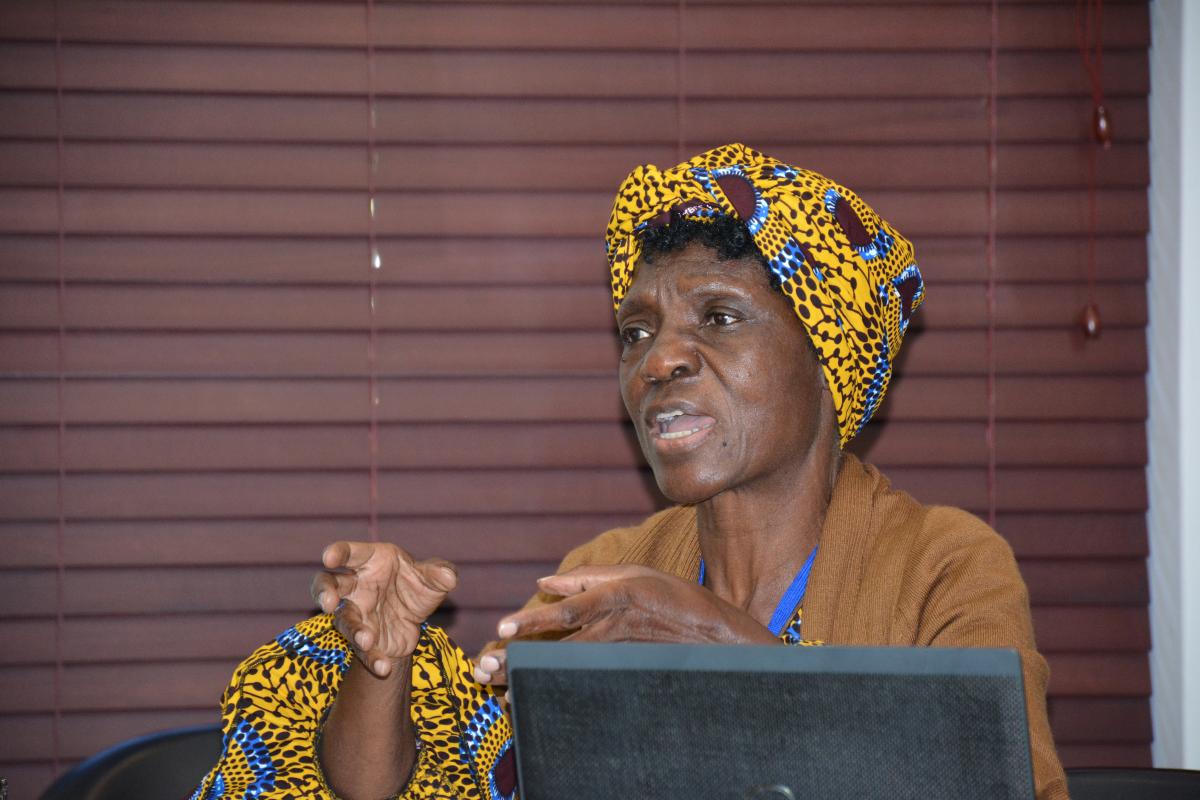
Dr. Joyce Mulila Mitto, the AICCRA Advisor from Zambia
One of the most significant takeaways was the principle of "Common but Differentiated Responsibilities." While Africa faces the pressing need to adapt to climate change effects, the onus for mitigation lies squarely on industrialized nations. The workshop recognized that tackling this global crisis requires different roles and responsibilities from each player on the international stage, emphasizing the urgency for developed nations to act.
The final note was on the imperative of "Risk Assessment." Regular risk evaluations are essential, the workshop concluded, for reducing failure rates and optimizing the success of climate change interventions. Such assessments would serve as a navigational tool in the uncharted waters of global climate change.
The training participants also proposed for CCARDESA to involve SADC focal point persons for Gender, politicians, and negotiators in the decision-making process
The workshop has been a stepping stone for creating a more equitable and sustainable approach to combating climate change and its gender-specific challenges. It also serves as a clarion call to all stakeholders to take collective and immediate actions.
In sum, the CCARDESA workshop served as a clarion call to all stakeholders—policymakers, activists, and communities alike. The urgent message was clear: the time for collective, differentiated, and evidence-based action is now.
The authors are CCARDESA ICKM Focal for Zambia and CCARDESA ICKM Officer.

























































